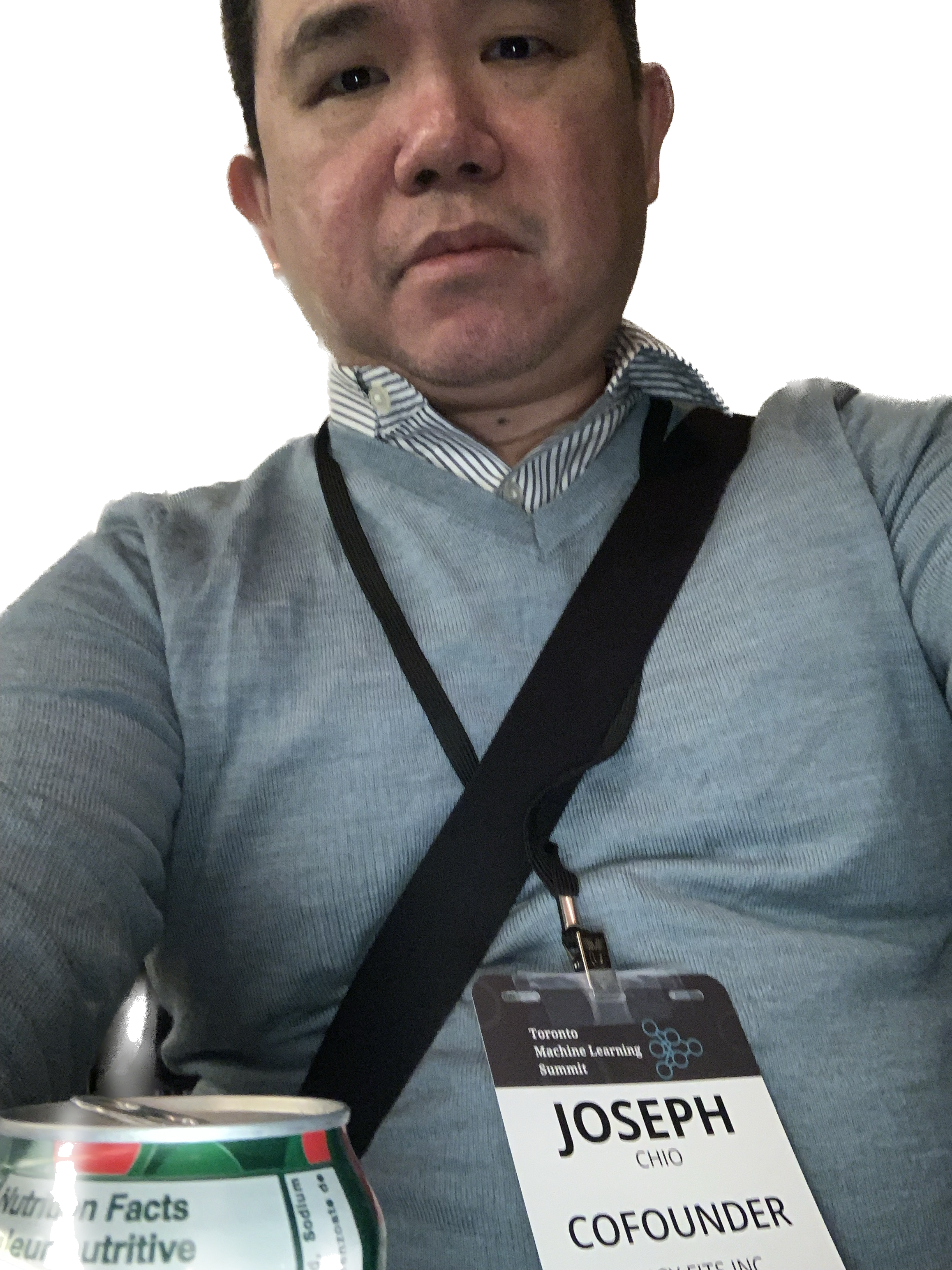This article was produced as part of an Inclusive Journalism Microcredential offered by New Canadian Media and Seneca Polytechnic. Learn more here.
In June 2021, Joseph Chio applied to migrate to Canada through its Startup Visa (SUV) pathway, designed to encourage entrepreneurs to come to the country, set up more businesses, and gain permanent residency, as part of efforts to expand the nation’s economy. 30 months later, however, his application remains in limbo, with no end in sight, even as those who have applied after him have already been approved to make the move.
Chio’s situation, however, is not an isolated incident.

“I represent not just myself, but what I term ‘the lost generation of 2021’, or the ‘2021ers’ – those like me who submitted their Start-Up Visa (SUV) applications throughout 2021, from January to December,” Chio said. “These applications, all paper-based, are believed to be among the notorious backlogged files of Immigration, Refugees and Citizenship Canada (IRCC).”
Until recently, the scheme also provided immigrant entrepreneurs a closed work permit valid for a year, with the potential for permanent residency within 12-18 months. Furthermore, since October 2022, all SUV applications have had to be made online.
Chio’s long wait started in June 2021 when he received a temporary file, which meant his application had been received, prior to processing. The 2021 SUV procedure, solely reliant on paper — deemed outdated by Chio — has resulted in frustrated applicants due to radio silence from IRCC. He is part of a WhatsApp group with more than 250 members, all awaiting their SUV applications.
“In our SUV chat group, applications post-2021 have seen some progress. However, the 2021 applicants appear forsaken,” Chio said. Since October 2022, all SUV applications must be made online. However, IRCC says on its website that processing SUVs could take up to 37 months.
His visa woes extend beyond PR application delays. Chio relocated to Canada in June 2022 on a closed work permit, leaving an award-winning senior executive role in a multinational consumer goods company. Since arriving, he has dedicated himself to his role as co-founder – recruiting, training talent, securing funding, forging alliances, and securing pilot clients for his tech firm’s software.
However, he faced three rejections for a work permit, due to administrative errors he attributes to IRCC. “I found myself without legal status and had to exit Canada immediately. I’ve never been undocumented in my life, until a clerical mistake by IRCC forced me into this position. My immediate response was to request a reversal of the refusal and to reapply from outside Canada,” said Chio, who is currently in his home country of the Philippines, awaiting his work permit or PR approval.
NCM sent an email to IRCC requesting clarification on why SUV processing was taking so long, and when those stuck in the logjam could expect their files to move. At the time of writing, however, they are yet to respond.
“The reasons for refusal are totally baseless — I had all this information provided in the original lodging. It is almost like the case officer overlooked more documents already submitted. The basis for my rejection seems to be referring to someone’s application…I have no idea about these grounds.”
Attempting to move his PR forward, Chio contacted former immigration minister Sean Fraser, receiving a noncommittal response, and was advised to submit a webform. Recently, he reached out to Minister Marc Miller and Willowdale MP Ali Ehsassi, seeking intervention not just for his case but for all 2021 applicants.
A crucial SUV program requirement is an endorsement from a Designated Organization (DO), a Canadian entity authorized by IRCC to assess and support applicants’ business proposals. DOs are categorized into venture capital firms, angel investor groups, and business incubators. After validating a business proposal, DOs issue a Letter of Support (LOS) and a Commitment Certificate (CC). Chio has secured investment and DO endorsement. As part of the due diligence associated with his process, he said he also raised $210,000 in 2021, and put it into escrow.
However, investor funds are in escrow, until they obtain PR. “The investment must be kept in the start-up until the permanent residency application is processed,” said Step Global Immigration, a Dubai-based agency providing Canadian SUV services, on its website. “The applicant may then be allowed to transfer or sell his/her stake in the start-up after obtaining permanent residency depending on the understanding he/she has with other business partners and the founder.”
Chio’s story isn’t the only one. Shail Niazi, co-founders of Talent Games, a company that uses gamification to assess top talent, had to wait three years for his PR.
A seven-year-old company, Talent Games was founded by Niazi and his Dutch partner based in Asia. The company began its journey in Pakistan before expanding to Singapore, where they worked with clients including FIFA, managing projects during the 2022 World Cup in Qatar. “We also collaborated with organizations such as Nestlé, Coca Cola, and Bain and Company, catering to the needs of these large-scale clients,” Niazi said.
Niazi thinks that Canada is still the most attractive place for entrepreneurs to come. “I acknowledge the extended processing time, attributed to the onset of COVID-19 in 2020-21, but it reveals the resilience required in the entrepreneurial landscape.”
Over the last three years, while waiting for his PR in Canada, Niazi’s company maintained their revenues in Singapore. Niazi explains that this decision was contingency planning, ensuring a sound financial position irrespective of the PR outcome. “Although financially strong in Singapore, leveraging these resources to secure loans in Canada proved elusive,” He said, adding that Canadian banks rely on Canadian balance sheets to provide credit.
“My advice to fellow founders is pragmatic: They need to secure sufficient funds for the initial years or establish a stable revenue stream to weather uncertainties.”
Uncertainty over IRCC plans of three-year open work permit:
When founders land in Canada, they are given a closed work permit, which restricts the holder to working for a specific employer and in a specific role, as opposed to allowing them to work for any employer in the country. In the case of SUV founders, they can only work for the company they founded.
“The limitation of closed work permits indeed poses a significant challenge. It restricts the ability of startup visa holders to seek alternative employment if their ventures face difficulties. Typically, support in the form of legal advice, lobbying for policy changes, and providing financial advice or emergency funds could be beneficial,” said Zavosh Zaboliyan, Entrepreneur Program Manager at Spring, an organization that provides business consulting services to entrepreneurs and startup founders.
Brianna Blaney, CEO and co-founder of Pocketed, added, “Building a business is hard, disproportionately so for equity-deserving entrepreneurs, who face added barriers. All entrepreneurs can benefit from mentorship and community support. However, many newcomer entrepreneurs encounter limited access to spaces, communities, and mentorship networks tailored to their needs.”
In June 2023, Fraser launched Canada’s first-ever Tech Talent Strategy, introducing new measures and enhancing existing ones to attract top talent, fuel innovation, and advance emerging technologies in Canada’s high-growth industries. Part of the plan was to introduce three-year long open work permits to SUV founders. This was reiterated by Paul Chiang, later this year at the Scale Without Border event in Toronto.
“I thought the June policy changes would help,” said Dr. Wendy Cukier, founder and academic director of the Diversity Institute, which conducts research into the challenges faced by racialized entrepreneurs in collaboration with the Future Skills Centre, a federally funded organization that looks into the challenges faced by Canadians in a changing labour market. “Work permits will be issued as open and not tied to a specific company – this will allow the company to restructure and change as it grows without concerns for updating work permits and provides capacity for supplemental income if needed.”
Shilpashree Jagannathan is a journalist from India. She now lives in Toronto and has worked as a business reporter for leading newspapers in India. She has tracked telecom, infrastructure, and real estate news developments and has produced podcast series. She currently focuses on human rights, feminist movements, and other related issues in Canada and India. Her weekends are spent bird watching in one of the Toronto birding hotspots; she loves trails, biking, and a lot of sun.
Gautam is a journalist, editor and content writer skilled in both digital and print media, who brings with him more than a decade of editorial experience across five countries, including Canada and the US. A member of the Canadian Association of Journalists, Gautam worked as Deputy Editor of the Times of Oman before moving to Canada, where he continues to write on healthcare, education, human interest stories, sport, lifestyle, and science and tech. Gautam has a Masters' Degree in journalism from the UK, and is fluent in both English and French. He lives in Toronto.



